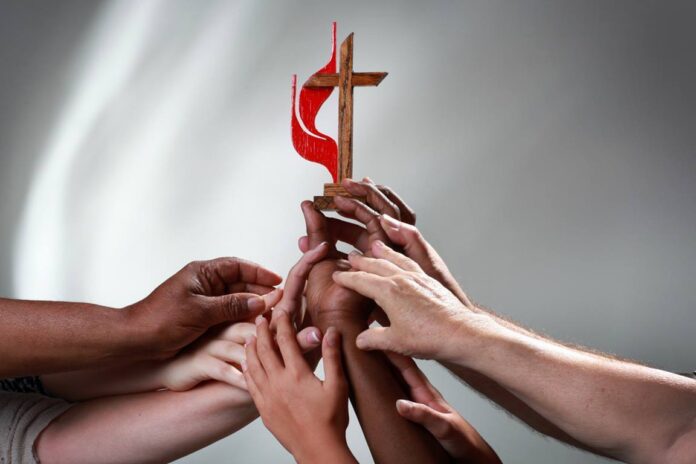Rome (NEV), May 2023 – Jim Winkler, former president of the National Council of Christian Churches in the USA (NCCCUSA), answers our questions to better understand the implications of disaffiliations from the United Methodist Church (UMC). With its 12 million members, the denomination represents one of the major voices of the American main line Protestant churches.
With the latest disaffiliations in Tennessee, 2,095 US congregations have withdrawn from United Methodist churches (UMC) since 2019 (about 7% of UMC churches). What is happening and what will happen?
A process of disaffiliation has been created to permit United Methodist congregations to leave the denomination. Presently, more than 2,000 of approximately 30,000 local churches have voted to depart. More departures can be expected prior to the deadline of December 31, 2023. 2/3 of the members of a local church must approve the departure and those local churches who vote to disaffiliate must pay in full outstanding financial obligations to the United Methodist Church.
Thus, a local church must take the initiative to depart. In my view, it is the angriest congregations that have chosen to leave.
Overall, the United Methodist Church will be more moderate theologically and politically and it will remain the largest of the ‘mainline’ denominations.
What implications there will be on ecclesiastical property and finances?
The financial implications on the United Methodist Church are quite significant. Simply stated, there will be less money to fund the denomination. Already, following significant membership loss over many years the denomination’s finances have been declining. These departures exacerbate those difficulties. I don’t believe the property implications are severe. Many of the departing congregations are small membership churches that do not occupy particularly valuable churches.
How do you see the future of Methodist missions around the world? Are the federal programs (faith based communities fund) still in effect?
The future of United Methodist missions around the world is challenging. There will be less funding available for mission work, seminaries, universities, aid, disaster relief, refugee assistance, development, ecumenical relationships, and other causes dear to the heart of the Christian faith.
Since many years, perhaps, people lived as parallel churches. Now, some congregations leave the UMC, reuniting with each other. Others leave, but seem to have the will to remain independent, in a “grey area”. Then, there are the churches that stay together in the UMC. How do you think this triple split hurts the main line churches denomination?
Over recent decades, unity of purpose has crumbled in mainline churches for a variety of reasons one of which is the culture of individualism in the United States. People have less commitment to and belief in many institutions including churches, government, education, and the media. It is increasingly difficult to obtain commitment in this environment. Further, there are fewer people who belong to a particular local church or denomination for their entire life. They do not know or care about the history or traditions of the denomination of which they are a member. They are attracted to a local church increasingly because of the activities or programs or the particular pastor and they desire for their local church to meet their needs and those of their family more than the needs of the community or the denomination. Thus, the disintegration of denominations is perhaps inevitable.
Is the question of homosexuality an alibi or is it real?
The question of homosexuality is real but there are other issues that play a role, as well. The mainline churches were for a long time pillars of the American Establishment but they began to question the very direction in which the nation was headed. They stood with Dr. King and the civil rights movement, they opposed the Vietnam War, they supported women’s rights and the leadership of women in their churches, they opposed the nuclear arms race. All these and other social justice causes cost the mainline churches dearly.
As the former NCCUSA President, do you think it is possible to seize opportunities in this crisis?
There are opportunities in this crisis. The United Methodist Church must free itself of the cult of church growth and become truly faithful to the teachings of Christ. This means demanding more of its members in terms of full commitment to the teachings of Christ. This means in many cases freeing the church from expensive and cumbersome buildings. This means engaging in authentic worship. This means reimagining itself as a community of believers who live lives devoted as Jesus did: loving God and neighbor and opposing empire and the accumulation of wealth and power.





























